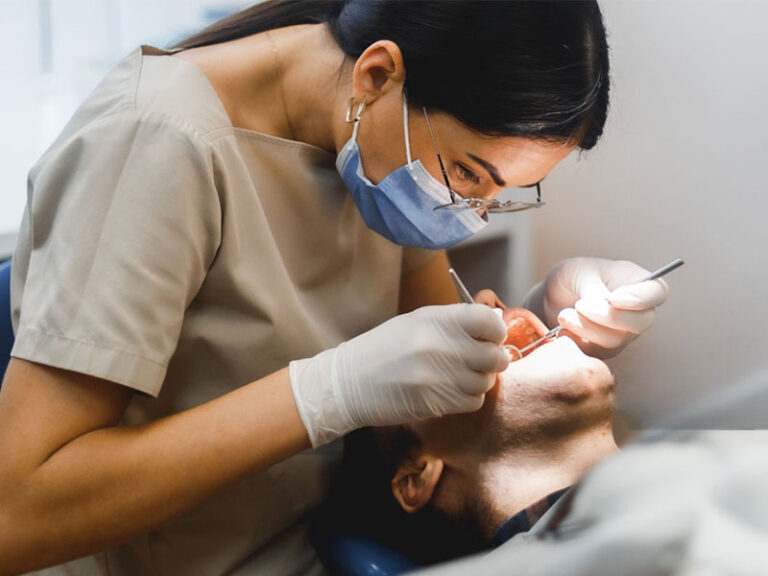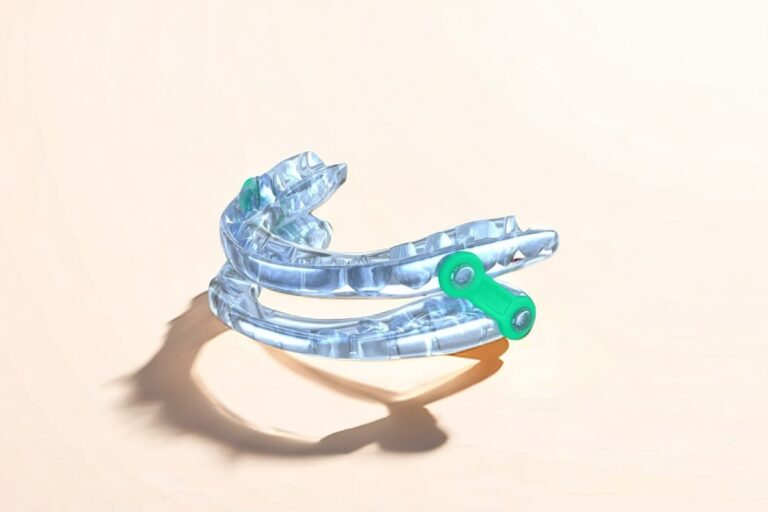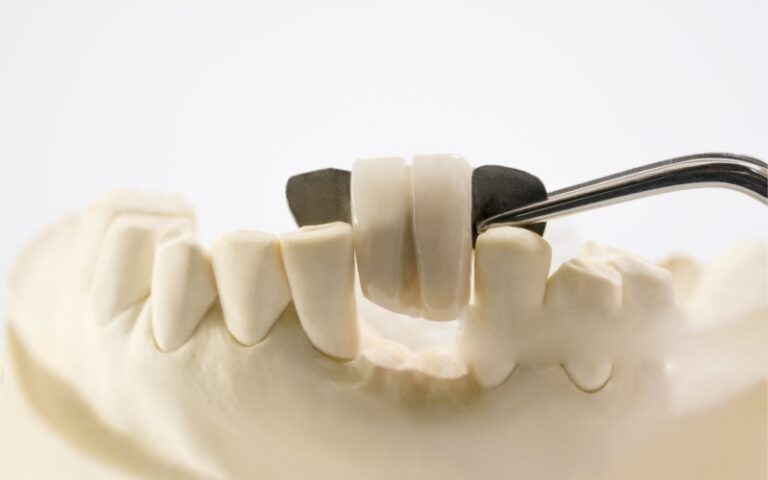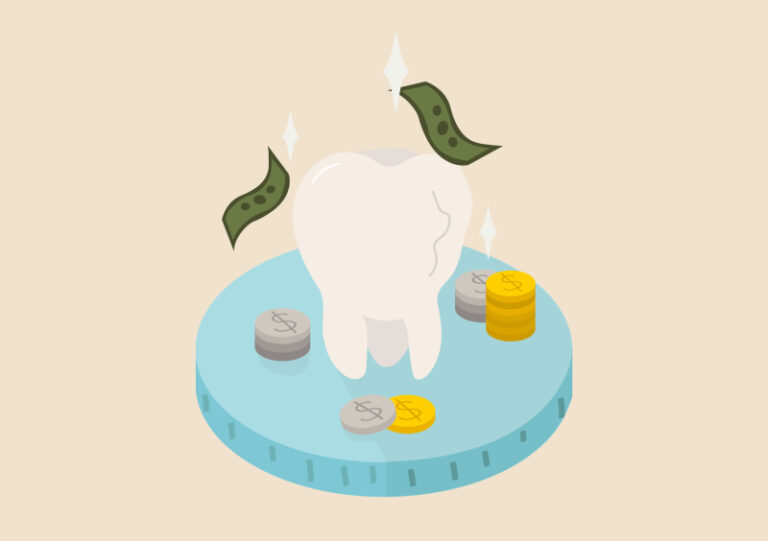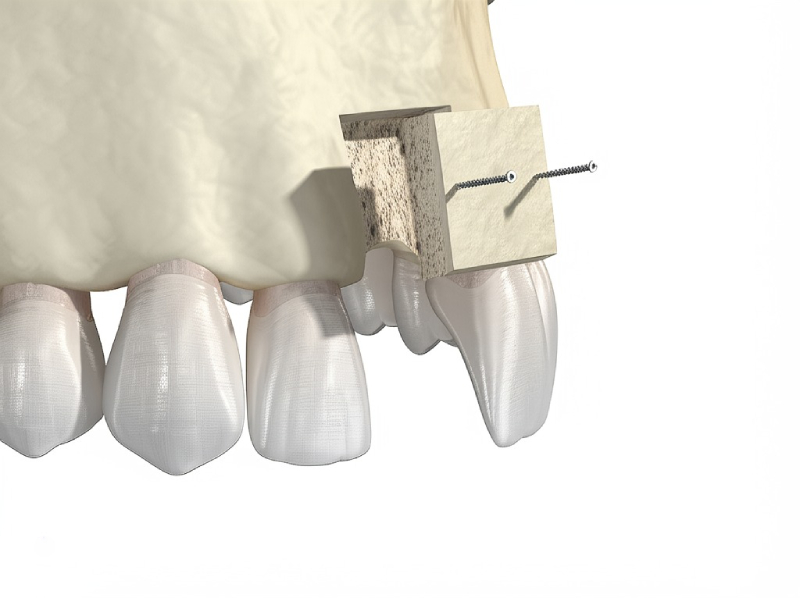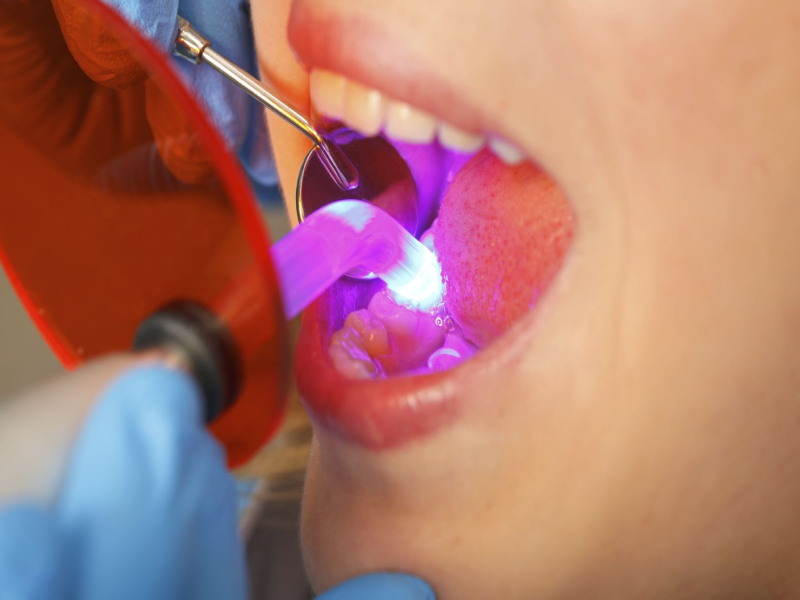
Dental Bonding: My Honest Guide to Fixing Your Smile
You might be reading this because you’re wondering about dental bonding. Maybe you chipped a tooth, have a small gap, or just want your smile to look a little better. I totally get it—I’ve been in your shoes, looking for straight-forward answers and advice I could really use. That’s why I wrote this guide, based on my own time getting dental bonding. My goal is to talk you through what you need to know, step-by-step, and share what I learned on the way.
Table of Contents
What Is Dental Bonding? The Basics
When my dentist first suggested dental bonding, I didn’t totally get it. Basically, dental bonding is when a tooth-colored stuff (it’s called composite resin) gets added right to your teeth to fix things like chips, little gaps, stains, or even the shape. The resin sticks to your real tooth with a glue, and a special light makes it hard.
Usually, it all happens in one dental visit. It might sound fancy, but in reality, it’s pretty simple. The composite resin they use looks like plastic and glass. A good dentist can make it look just like your real teeth. Sometimes people say “direct bonding,” which just means the dentist builds up the tooth during your appointment with no need to send anything to a lab.
Who Should Try Dental Bonding? People It Fits Best
So, who should look into dental bonding? Based on what I learned and what my dentist told me, it’s really flexible but it doesn’t work for everything. These are the most common times bonding works well:
- Chipped or cracked teeth: This is how I ended up at the dentist. I chipped my front tooth on popcorn—go figure. Bonding fixed the edge and you can’t even tell.
- Fixing little gaps: If there’s a tiny space between your teeth, bonding can fill it in. One of my coworkers did this and their front teeth looked awesome.
- Discolored teeth: Whitening doesn’t always work for deep stains. My dentist showed me photos where bonding made a big difference.
- Evening out or lengthening teeth: You can even fix teeth that don’t match or are too short.
- Covering up roots: If your gums go back and roots are showing, bonding can cover them and help with sensitivity.
- Replacing metal fillings: Some people don’t like the look of silver. Composite resin matches your tooth shade.
Keep in mind: It’s not for everyone. If your tooth has serious problems or if your teeth are really out of line, your dentist might tell you to pick something else.
The Upsides of Dental Bonding: Why I Went With It
When I was deciding, I did what I always do—I made a pros and cons list. Here’s what got me to choose bonding:
Looks Real
This shocked me. Once the dentist finished, I honestly couldn’t see where the resin started and my real tooth ended. They picked the right color and polished it to look just like the rest.
Doesn’t Damage Your Tooth
With crowns or veneers, you have to lose a lot of your real tooth. With bonding, you keep most of your own tooth. I didn’t even need numbing.
Less Expensive
Veneers and crowns can cost a lot more and make you come back several times. With bonding I paid less, finished in under an hour, and smiled way bigger on the way out.
Fast
I went in at 2 PM and left at 3 PM looking so much better. If only all dental stuff was that quick.
Can Be Taken Off
If I ever wanted it removed, I could. Taking off the resin doesn’t wreck your tooth. Can’t say that for every dental procedure.
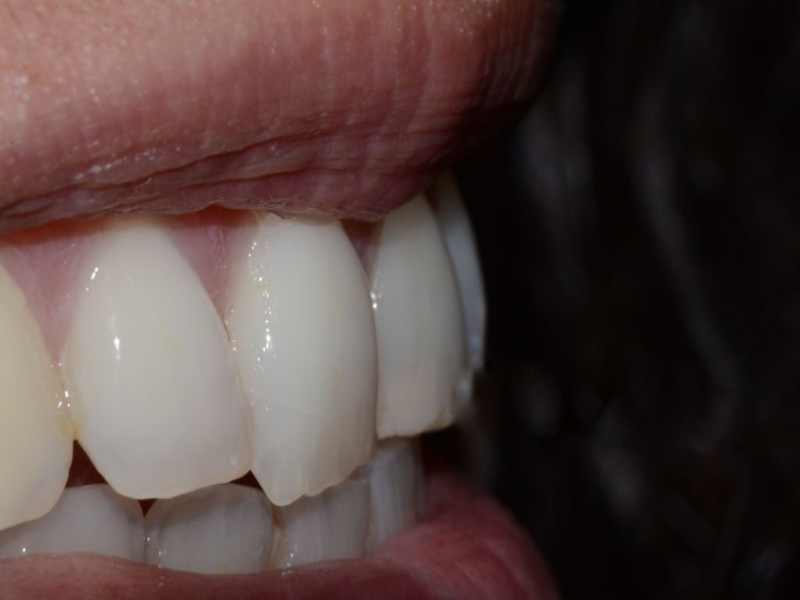
Step-by-Step: Here’s How Dental Bonding Goes
I went in not having a clue what was about to happen. Here’s how my appointment went:
1. Checking Things Out
The dentist looked at my teeth, asked what I wanted, and helped me pick the resin color that matched my other teeth.
2. Getting Ready
My tooth was cleaned. Sometimes, dentists use a weak acid to roughen up the tooth so the resin sticks better. Didn’t hurt a bit.
3. Putting on the Resin
Here’s where the skill comes in. The dentist spreads the resin (kind of like putty) and shapes it until it looks right.
4. Hardening With Light
Next, they shine a blue light to harden it. Sometimes they do lots of small layers, making sure it’s strong.
5. Smoothing and Shining
Last step—the dentist smooths and polishes the tooth so it shines like the rest. One tooth took around 45 minutes.
Aftercare and Recovery: How I Kept My Smile Safe
Right after, I felt mostly fine. Maybe a little sensitive to hot or cold, but that went away quickly. The dentist gave me a few easy tips that really helped:
- Watch what you bite: Don’t crunch ice or chew on pens (I used to—bad idea) so you don’t chip the resin.
- Try to avoid stains: Coffee, red wine, and smoking can stain it. I got used to rinsing after those.
- Brush and floss gently: You still need to clean bonded teeth, but harsh toothpaste can take away the shine.
- Go to cleanings: Dentists can check the bonding and do things to keep it looking good.
How Long It Lasts: My Real Experience
The question I kept asking: How long does bonding stay good?
For me, the resin lasted about eight years. I had to get a small fix after I opened a snack with my teeth (oops). Dentists say it can last 5 to 10 years, even up to 15 if you’re careful.
What makes it last or not?
- What you bite and chew: Chewing on hard stuff can make it chip.
- Oral care: Daily brushing and flossing helps prevent stains or problems.
- Grinding teeth: If you grind your teeth, tell your dentist. You might need a mouth guard at night.
- Habits: I slowed down on wine and coffee, at least during the first few weeks.
How do you know it’s time for a fix?
You’ll probably notice a rough edge, chips, or stains that don’t go away. At my regular checkups, my dentist always checked for problems and fixed things if needed.
Pros and Cons: What I Learned
Every dental fix has good and not-so-good points. Here’s my honest list:
Pros
- Looks: My smile was better the same day.
- Price: Way less than veneers or crowns.
- Speed: I didn’t have to wait weeks for results.
- Saves your tooth: Almost none of my own tooth was taken away.
Cons
- Can stain: Over time, coffee stained my bonding a bit. It didn’t whiten as easily as my natural teeth.
- Not super strong: I chipped my bonding once. Luckily, repairs are simple.
- Not good for big repairs: Big cracks or wanting to fix lots of teeth? Bonding may not cut it. You might need crowns or veneers.
- Needs upkeep: Every few years, you might need a quick fix.
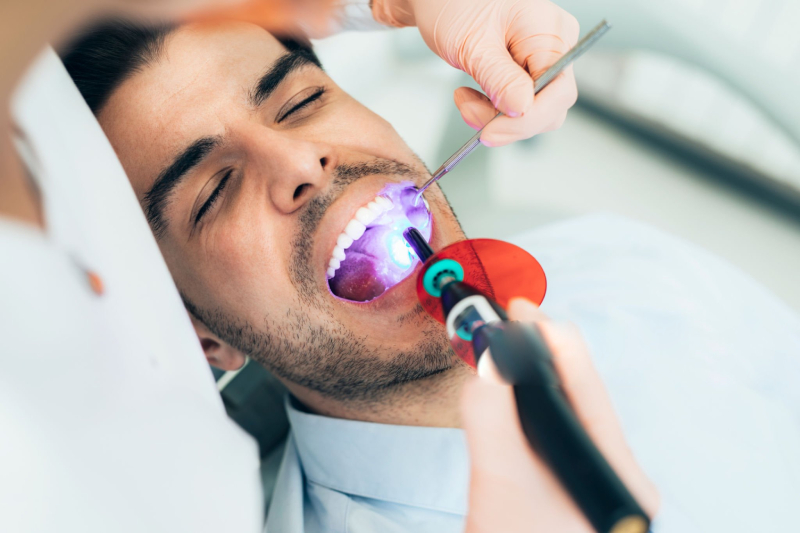
Cost: What I Paid and What You Should Know
Let’s talk money—because it matters. To fix one front tooth in a big city, I paid about $400. Here’s what changes the price:
- Where you live: Prices go up in big cities.
- Dentist skill: Better dentists sometimes charge more, but you often get what you pay for.
- How many teeth: The more you get done, the more you pay.
- Tricky repairs: Bigger cracks or shaping ups the price.
From my dentist and what I found online, most people pay $300–$600 for each tooth. Dental insurance might help if the bonding repairs a break—not just for looks. Mine didn’t cover my chip, but yours might for other issues.
Worried about cost? Some dentists let you pay over time or offer payment plans.
Other Options: What I Thought About
I looked at every option before picking bonding. Here’s my take:
Porcelain Veneers
Veneers are thin covers for the front of your tooth. They look great and don’t stain much, but they cost way more. They’re permanent—dentists need to file away some of your tooth.
Crowns
If your tooth is in bad shape or weak, you might need a crown. Crowns mean even more of your tooth gets cut down. It’s pricier and usually needs two visits.
Braces or Aligners
Big gaps or crooked teeth? Braces or clear aligners will fix things over time. It’s not fast and can really cost a lot, but the change is huge.
Professional Whitening
If your only problem is discolored teeth (not from a crack or chip), whitening might do the trick.
Doing Nothing
I considered just living with my chip. But small chips or cracks can turn into bigger problems later.
Ask your dentist what’s best before you decide. They’ll explain your choices.
FAQs: Stuff I Wanted to Know
Does dental bonding hurt?
No, I didn’t feel any pain—just a bit sensitive afterwards.
Can bonded teeth stain?
Yes, more than porcelain or real teeth. Coffee, tea, and red wine are the biggest culprits.
How do I keep bonded teeth clean?
Brush gently with a soft toothbrush, floss, and skip abrasive toothpaste.
Can bonding fix big gaps?
Small and medium gaps, yes. Large gaps may need something else like braces or veneers.
Can you take bonding off?
Yes, mostly. Taking it off usually doesn’t mess up your tooth.
What if my bonding chips?
Don’t worry! Most chips are easy and not too expensive to fix. My dentist fixed mine in 30 minutes.
When to See a Dentist About Dental Bonding
If you chipped a tooth, see stains that won’t leave, notice small gaps, or want to fix the shape—see your dentist. Honestly, nothing beats getting advice in person. Your dentist can check your teeth and talk through what works best for your smile goals.
Conclusion: Why I’d Say Yes to Dental Bonding (and When I Wouldn’t)
Dental bonding really helped my smile. It was fast, not too expensive, and looked totally real. If you want a quick fix for chips, gaps, or stains, and want to keep nearly all your tooth, give bonding a real look.
But, if you need something stronger or want a big change, or if you drink lots of coffee and hate doing touch-ups, maybe ask your dentist about other options.
Whatever you pick, choosing with your dentist (and knowing what’s ahead) makes things way easier. Here’s to happy, healthy smiles!

